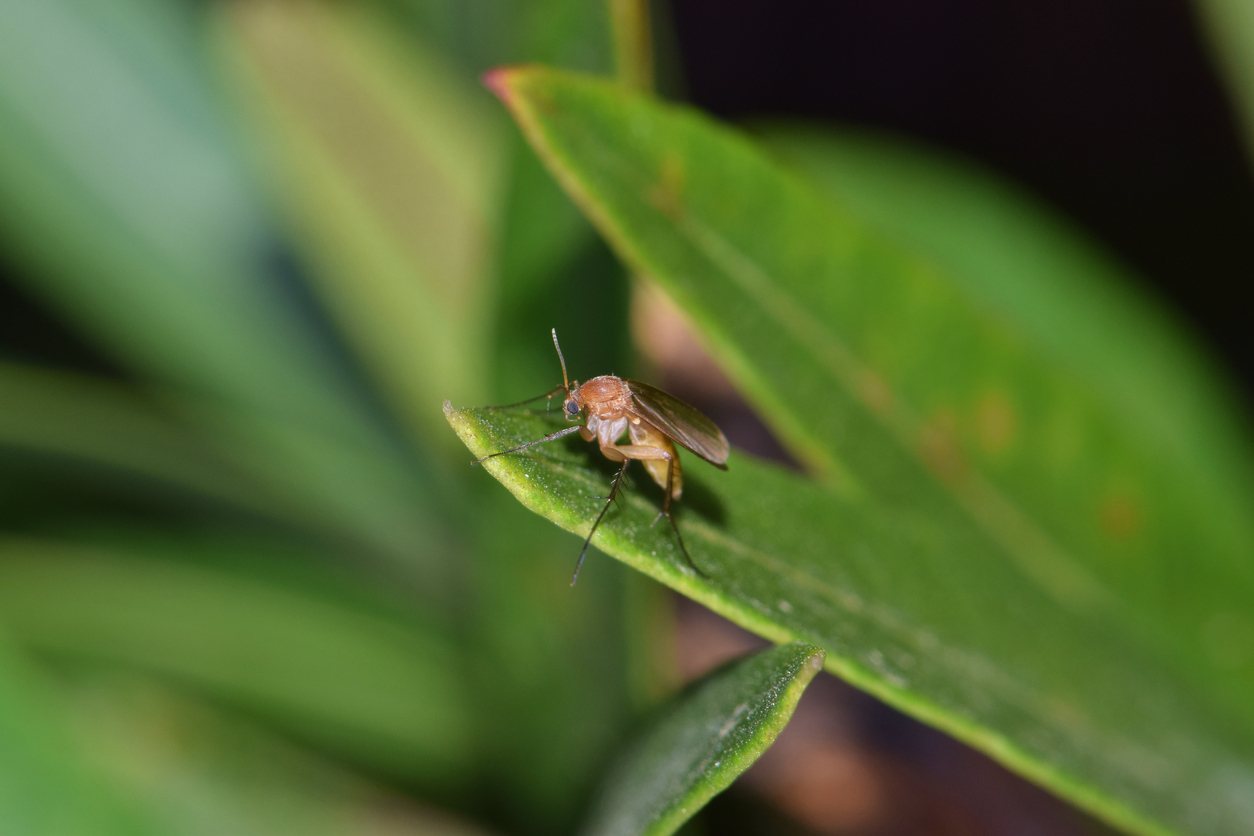I love gardening. I also sometimes hate gardening. Well, hate might be a strong word. But we all have those immensely frustrating moments when it seems like everything goes wrong. Roots rotting. Leaves withering. Flies eating plants. Deer eating tomatoes.
A lot of these issues are somewhat easy to fix. You may need to water a little more or a little less. Maybe some deer fencing is in order. But flies? You can’t really keep them out with a fence, and you don’t want to douse all your plants with insecticide. So where are they coming from and what can you do about them?
Discover 7 top tips for growing, harvesting, and enjoying tomatoes from your home garden—when you access the FREE guide The Best Way to Grow Tomatoes, right now!
5 Natural ways to stop flies eating plants and destroying your delicious veggies
Before we get into ways to stop flies eating plants in your garden, let’s talk about insects. I’m guessing you know by now that bees are one of the most important insects on the planet. They are prolific pollinators; the USDA points out that 35 percent of the world’s food crops depend on insect pollinators. The American Beekeeping Federation estimates that honey bees “contribute nearly $20 billion to the value of U.S. crop production.”
So any time we talk about controlling pests like flies, it’s important to think about balance. We don’t want to diminish the bee population or kill those cute little (and deadly to aphids) ladybugs! Nevermind the fact that, even though pesticides would get rid of flies, we’re eating that same pesticide when we harvest those veggies for dinner.
At the same time, the flies eating plants in our gardens can easily ruin crops. There are a number of flies that can do some serious damage to a vegetable garden. Here’s a quick look at a couple of these pests:
- Whiteflies: These tiny white insects leave a sticky residue on plants and tend to exist in big groups. Whiteflies feed on plant juices, resulting in weak, wilting, and shriveled leaves.
- Fungus gnats: These look a bit like fruit flies, and they tend to affect seedling, eating the roots, making the plant vulnerable to disease.
There are, fortunately, several natural solutions to getting rid of these flies eating plants in your garden. As a bonus, most of these methods will also ward off other pests.
1. Take care of your soil. There are lots of benefits here, and though it isn’t a direct solution to getting rid of flies and other pests, healthy soil leads to healthy plants. And it’s no big surprise that healthier plants are more adept at surviving a few flies.
2. Companion planting. I love companion planting for a lot of reasons. I think it looks really nice to have different vegetables and flowers mixed together in the garden. But one of the best reasons for companion planting is pest control. Herbs like basil, rosemary, and sage do double duty in both attracting pollinators and deterring flies and other pests. Alliums, like chives and garlic, also deter garden pests.
3. Attract beneficial insects. This is a slight variation on companion planting, but again, it works wonders in helping contain the worms and flies eating plants in your garden. Flowers, like marigolds and nasturtium, attract insects like ladybugs that feed on these pests. An army of ladybugs may be all you need to keep your garden healthy.
4. Adopt interplanting. Rather than plant your garden in sections, mix things up. This confuses pests, and even if they do find and attack one or two plants in your garden, it will be hard for them to move on and destroy your entire crop.
5. Get rid of infested plants. If, despite your efforts, you still find that you have an infestation, get rid of the plant or plants that are impacted. This could keep the flies from spreading to other parts of your garden.
These pest control and prevention methods have a number of overall benefits to your garden, but even if you do see a few flies here and there, don’t fret. The beneficial insects that feed on them and help pollinate your garden will leave if they don’t have a source of food.
What do you think? Do you have a good method for preventing or getting rid of flies in your garden?
Discover 7 top tips for growing, harvesting, and enjoying tomatoes from your home garden—when you access the FREE guide The Best Way to Grow Tomatoes, right now!

3 replies on “What’s the Deal with Flies Eating Plants?”
Is Neem Oil okay to use?
I am glowing salad greens in the pots in my patio. They are great for salad. But I noticed something eating the greens. There are no animals, not even squirrels. But we have a bunch of birds on the fence and ground. How can I stop them? Should I cover nets over the pots or sprinkle red pepper on the potting soil? It did not happen in the spring.
The culprits are typically rabbits, mice, squirrels or even slugs or cutworms. Netting should help keep critters out. If your problem is slugs or cutworms then you should carefully check your plants to make sure they are not hiding among the leaves then try sprinkling some diatomaceous earth as a barrier or a dish of beer as a trap.